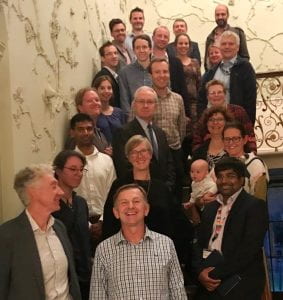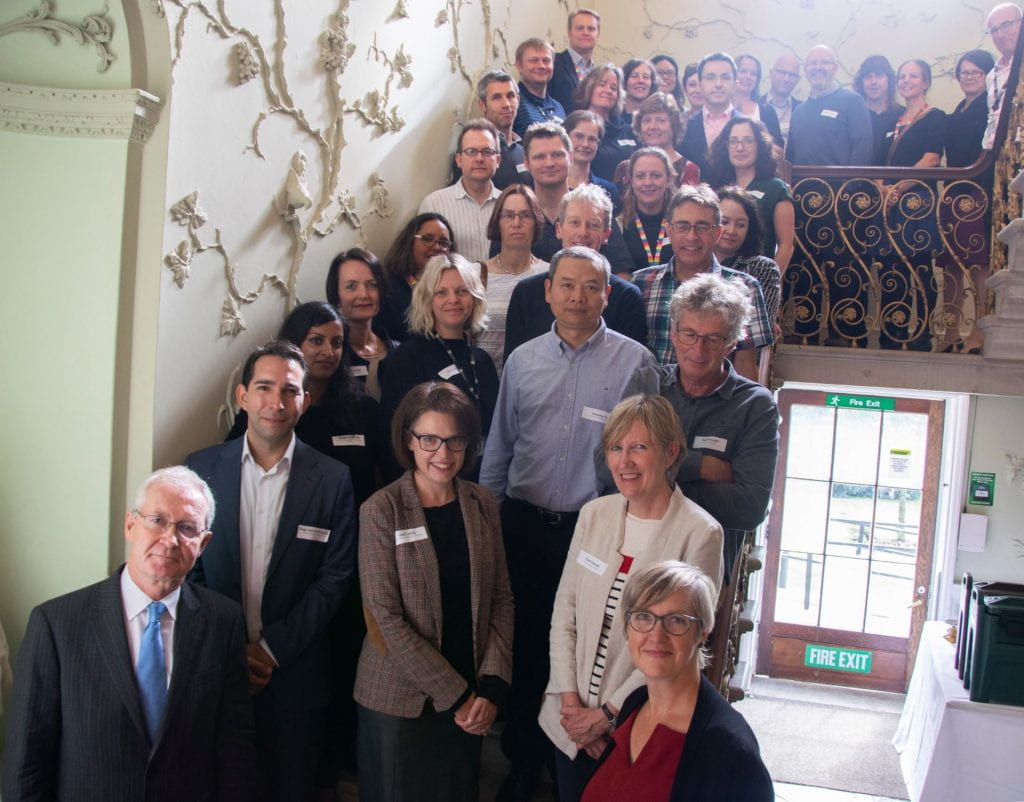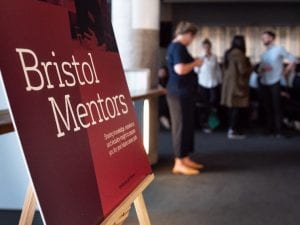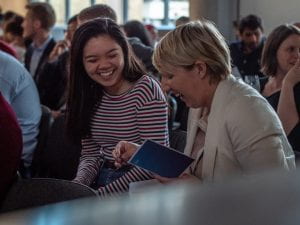By Professor Judith Squires, Deputy Vice-Chancellor and Provost
For the next in the series of Provost Celebration of Academic Achievements on the 24 October 2019, we moved from celebrating research grant successes to celebrating significant successes in teaching and learning and student satisfaction.
Special congratulations went to Lucy Berthoud, Professor of Space Engineering, and Professor Ki Cater, Academic Director of the Centre for Innovation and Entrepreneurship (CfIE), who both received Advance HE awards at a ceremony in Manchester on the 16 October 2019.
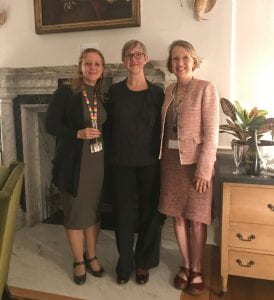
Lucy, described by her students as ‘a fantastic lecturer’, ‘really enthusiastic and engaging’ and ‘motivated and motivating’, received a National Teaching Fellowship(?) in recognition of her outstanding impact on student outcomes and the teaching profession. Ki and the CfIE team received a Collaborative Award for Teaching Excellence (CATE). The Centre for Innovation and Entrepreneurship is educating the next generation of innovators and entrepreneurs, helping them to develop the adaptability, transdisciplinary and innovative thinking to make positive differences in an ever-changing world. This is achieved through an innovative, collaborative, interdisciplinary team of academics and industry professionals, who passionately engage with students as co-creators.
Colleagues also gathered together to celebrate the University’s success in the 2019 National Student Survey (NSS) where the University of Bristol achieved a score of 85% overall satisfaction, which meant our overall student satisfaction score had risen by 3% compared to 2018 and was 1% above the national average.
The results show that the University has recovered ground compared to last year. 26 programmes at Bristol scored above 90% for satisfaction, with Veterinary Sciences scoring 99% and Biochemistry, Chemistry and Engineering Design achieving 100%. Subjects at the University featured in the top quartile of universities in every question set: for example, 10 subjects were in the top quartile for Organisation and management and six for Overall satisfaction. Areas that remained consistently strong were teaching on a student’s course (at 86%); students being able to contact staff when needed (at 89%); and the value placed on the University’s learning resources (87%).
More specifically, across the Teaching section, 23 programmes scored 100% with students commenting, ‘Staff are good at explaining things’ (Anthropology, Cellular & Molecular Medicine, Chemistry with Industrial Experience/Study Abroad, Childhood Studies, Engineering Design, Film and Television, French and Italian, French, Music, Pharmacology, Philosophy, Religion and Theology, Social Policy with Criminology, Theatre and Performance Studies, Zoology), or ‘Staff have made the subject interesting’ (Biology, Classical Studies, Engineering Design, French and German, French and Italian, French, Music, Politics and Sociology). Other remarks from students were; ‘The course is intellectually stimulating’ (Anthropology, Archaeology and Anthropology, Biochemistry, Chemistry, Engineering Design, Pharmacology, Politics and Sociology) and ‘My course has challenged me to achieve my best work’ (Chemistry with study abroad, Engineering Design). A further 33 programmes received a score 90% or above in at least one of the four Teaching questions.
In terms of Academic Support, an area where we had asked schools to focus, 15 programmes scored 100% in response to a question, ‘I have been able to contact staff when I needed to’ and a further 21 programmes scored 90-99% for the same question. Assessment and feedback scores continue to be a challenge; the University performed less well in comparison to the sector but we are continuing to focus on this key area in order to bring about positive changes.
So thank you to everyone involved, from our National Teaching Fellows, CATE team winners, 2019 Best of Bristol lecturers and Bristol Teaching Award winners, to School and Faculty Education Directors and Education Services staff, for investing in our students’ learning and satisfaction to achieve these excellent results.



